Nutrition during pregnancy is essential for the health and development of both the mother and the baby. A well-balanced healthy pregnancy diet not only supports fetal growth but also helps manage common pregnancy discomforts. Expectant mothers should be aware of the importance of certain pregnancy nutrition tips, such as including calcium-rich foods and taking folate and iron supplements to meet increased nutrient needs. Additionally, it is crucial to know which foods to avoid during pregnancy to ensure the safety and well-being of the developing baby. By focusing on optimal nutrition during pregnancy, mothers can promote their child’s health and set the foundation for a lifetime of wellness.
During the gestational period, providing the right nutrients is critical for both maternal and fetal health. The dietary choices made during this time are pivotal, as they directly influence the baby’s development. Understanding essential components such as a balanced intake of proteins, vitamins, and minerals, along with the avoidance of harmful substances, plays a vital role in achieving a healthy pregnancy. Incorporating adequate sources of calcium and considering folate and iron supplements can significantly enhance maternal nutrition. Overall, adopting a holistic approach to dietary habits during this transformative phase is fundamental for a successful pregnancy.
Essential Nutrition Tips for a Healthy Pregnancy
During pregnancy, it is crucial to establish a well-rounded diet that supports both your health and the development of your baby. A healthy pregnancy diet should include a variety of nutrients, including proteins, vitamins, and minerals. Incorporating foods rich in folate, such as leafy greens, beans, and fortified cereals, is essential, as folate plays a vital role in preventing neural tube defects in the developing fetus. Additionally, iron-rich foods like red meat, spinach, and legumes are important to combat anemia and support the increased blood volume during pregnancy.
Eating small, frequent meals can help manage nausea and maintain stable energy levels throughout the day. It is also advisable to include calcium-rich foods, such as dairy products and leafy greens, to support your baby’s bone development and prevent osteoporosis in the long run. By focusing on a balanced diet that emphasizes fresh, whole foods, expectant mothers can ensure they are meeting their nutritional needs while enjoying a healthy pregnancy.
Foods to Avoid During Pregnancy: A Comprehensive Guide
When it comes to pregnancy nutrition, knowing which foods to avoid is just as important as knowing what to eat. Certain foods can pose risks to both the mother and the developing baby. High-caffeine beverages, such as coffee and soda, should be limited, as caffeine can interfere with calcium absorption and potentially affect fetal growth. Additionally, raw or undercooked meats, fish containing high levels of mercury, and unpasteurized dairy products pose serious health risks and should be avoided at all costs.
Alcohol and smoking are two other significant factors to steer clear of during pregnancy. Both can lead to severe developmental issues and complications for the baby. Pregnant women should also be cautious with certain herbal teas and supplements, as not all are safe during pregnancy. By being aware of these foods and substances to avoid, expectant mothers can take proactive steps to ensure a safe and healthy pregnancy.
The Importance of Calcium and Folate During Pregnancy
Calcium is one of the most critical nutrients during pregnancy, as it plays a vital role in the development of your baby’s bones and teeth. Pregnant women need to increase their calcium intake to around 1,000 mg per day, which can be achieved by consuming dairy products like milk and cheese, as well as plant-based sources such as broccoli and fortified plant milks. Adequate calcium intake not only supports fetal development but also helps protect the mother’s bone health in the long run.
Folate, on the other hand, is essential for DNA synthesis and cell division, making it particularly crucial during the early stages of pregnancy. Pregnant women are advised to take folate supplements as well as consume foods rich in folate, such as dark leafy greens, beans, and fortified cereals. This helps to reduce the risk of neural tube defects and supports the overall growth of the fetus. By prioritizing calcium and folate in their diets, expectant mothers can create a nurturing environment for their developing babies.
Fluid Intake and Hydration Needs During Pregnancy
Hydration is a vital aspect of nutrition during pregnancy, as your body requires more fluids to support the increased blood volume and to help with amniotic fluid production. Pregnant women should aim to drink at least 10-12 glasses of water each day. Staying well-hydrated can mitigate common pregnancy issues such as constipation and edema, while also preventing urinary tract infections that can arise during this time.
In addition to plain water, consuming hydrating foods like fruits and vegetables can also contribute to your daily fluid intake. Herbal teas and coconut water can be included as well, but it’s essential to avoid those with caffeine or high sugar content. By ensuring adequate hydration throughout pregnancy, expectant mothers can support their overall health and the well-being of their babies.
Sample Nutrition Menu for Expectant Mothers
Creating a balanced nutrition menu during pregnancy can help ensure you receive all the essential nutrients needed for both your health and your baby’s development. A sample menu may include a breakfast of oatmeal topped with fruits and nuts, providing fiber and healthy fats, followed by a mid-morning snack of yogurt and berries for added calcium and antioxidants. For lunch, a quinoa salad with mixed greens, grilled chicken, and a variety of colorful vegetables can offer a wide range of vitamins and minerals.
Dinner could consist of grilled salmon, a rich source of omega-3 fatty acids vital for brain development, served with steamed broccoli and sweet potatoes. Throughout the day, incorporating snacks like nuts, seeds, or fruit can help maintain energy levels and provide additional nutrients. This sample menu highlights how a variety of foods can contribute to a healthy pregnancy diet, ensuring that expectant mothers meet their increased nutritional needs.
Understanding Caloric Needs During Pregnancy
During pregnancy, understanding your caloric needs is crucial to support both your health and that of your baby. On average, women should aim to consume about 2,000 calories per day, increasing by approximately 300 calories during the second trimester and by another 400-450 calories in the third trimester as the baby grows rapidly. The focus should be on nutrient-dense foods rather than empty calories, ensuring that the extra intake comes from healthy sources.
It’s essential to listen to your body’s hunger cues and eat accordingly, but also to avoid excessive weight gain, especially if starting from a higher weight. A registered dietitian can help you create a personalized meal plan that meets your caloric and nutritional needs while ensuring a healthy pregnancy. By prioritizing balanced meals and healthy snacks, pregnant women can maintain a healthy weight and feel their best throughout their pregnancy.
Pregnancy Nutrition FAQs: Common Concerns and Answers
Navigating nutrition during pregnancy can raise many questions for expectant mothers. Common concerns include what to eat during the first trimester, how to handle cravings, and what foods to avoid. Understanding that each trimester has unique nutritional requirements can help in making informed choices. For instance, in the first trimester, focusing on adequate folate and hydration is essential, while later trimesters may require more protein and healthy fats.
Additionally, many women wonder about safe food options and how to manage nausea or food aversions. Consulting with a healthcare provider or nutritionist can provide tailored guidance and reassurance, ensuring that both mother and baby receive the necessary nutrients for a healthy pregnancy. Addressing these common concerns can empower expectant mothers to make informed decisions about their nutrition.
The Role of Nutrition Counseling During Pregnancy
Nutrition counseling can be a valuable resource for expectant mothers, offering personalized advice on dietary choices and meal planning during pregnancy. A qualified nutritionist can help navigate the complexities of changing nutritional needs, provide guidance on managing common pregnancy symptoms, and suggest healthy alternatives to cravings. This support is especially beneficial for women with dietary restrictions or those who are unsure about how to meet their nutritional needs.
By engaging in nutrition counseling, mothers can learn about the importance of a balanced diet that includes adequate amounts of folate, calcium, and other essential nutrients. Setting realistic goals and creating a sustainable eating plan can lead to healthier outcomes for both mother and baby. Overall, nutrition counseling serves as an empowering tool for women to take control of their health during this transformative time.
Frequently Asked Questions
What is a healthy pregnancy diet and how can it benefit my baby?
A healthy pregnancy diet is essential for the growth and development of your baby. It should include a variety of foods rich in nutrients like folate, iron, calcium, and omega-3 fatty acids. Consuming a balanced diet with fruits, vegetables, whole grains, lean proteins, and dairy can help ensure your baby receives the necessary vitamins and minerals for healthy development.
What are some pregnancy nutrition tips for the first trimester?
During the first trimester, focus on eating small, frequent meals to combat nausea. Prioritize foods rich in folate, such as leafy greens and legumes, and take folate supplements as recommended. Stay hydrated and incorporate calcium-rich foods like dairy products to support your baby’s skeletal development.
Which foods should be avoided during pregnancy to ensure a healthy diet?
Foods to avoid during pregnancy include high-mercury fish, raw or undercooked meats, unpasteurized dairy products, and excessive caffeine. These foods can pose risks to both your health and your baby’s development, so it’s crucial to choose safe, nutrient-dense options.
How important is calcium during pregnancy and what are its sources?
Calcium is vital during pregnancy as it helps build your baby’s bones and teeth. You can obtain calcium from dairy products, leafy greens, nuts, and fortified foods. Aim for at least 1,000 mg of calcium per day to support both your health and your baby’s growth.
What are the best pregnancy nutrition tips for brain development in the baby?
For optimal brain development, include foods rich in omega-3 fatty acids such as fatty fish (like salmon and sardines), walnuts, flaxseeds, and leafy greens rich in folate. These nutrients are crucial for healthy brain formation and cognitive function.
How many meals should a pregnant woman eat each day?
A pregnant woman should aim to eat 5 to 6 small meals throughout the day rather than three large ones. This approach helps maintain energy levels, prevents nausea, and ensures adequate nutrient intake for both mother and baby.
When should I start taking folate and iron supplements during pregnancy?
It is recommended to start taking folate supplements at least one month before conception and continue through the first trimester. Iron supplements should also be taken during pregnancy as recommended by your healthcare provider to meet increased iron needs.
Can pregnant women drink mineral water, and are there any restrictions?
Yes, pregnant women can drink mineral water, but it is advisable to choose brands that are low in sodium. Staying hydrated is important for both mother and baby, so include mineral water as part of your fluid intake.
What is the calorie requirement during pregnancy?
During pregnancy, calorie needs increase gradually. On average, an additional 300 calories per day is recommended during the second trimester, and about 400-450 calories during the third trimester, depending on your individual health and weight.
What should I do if I need a nutritionist for pregnancy counseling?
If you need a nutritionist for pregnancy counseling, seek a registered dietitian who specializes in prenatal nutrition. They can provide you with personalized dietary plans and guidance to ensure you meet the nutritional needs for a healthy pregnancy.
| Key Points | Details |
|---|---|
| Eat Small Meals Frequently | Avoid long periods of hunger and aim for 3 main meals and 3 snacks daily. |
| Take Folate and Iron Supplements | Start taking folate one month before pregnancy, and continue for the first 3 months. Iron supplements are also recommended. |
| Eat Sufficiently and Balanced | Include a variety of foods: meat, eggs, fish, dairy, and whole grains for balanced nutrition. |
| Consume Fresh and Safe Foods | Opt for fresh, seasonal foods and avoid pre-packaged items. |
| Eat Calcium-Rich Foods | Include milk, yogurt, cheese, nuts, and leafy greens to meet calcium needs. |
| Hydration | Drink at least 10-12 glasses of water daily to support increased blood volume. |
Summary
Nutrition during pregnancy is crucial for both the mother and baby. It is important for expectant mothers to focus on balanced meals, incorporating a variety of nutrients to support healthy development. By following guidelines such as eating smaller meals frequently, taking necessary supplements, and ensuring proper hydration, pregnant women can optimize their health and the health of their baby.

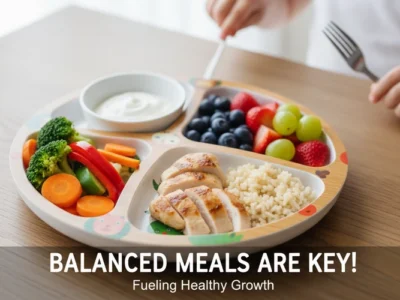

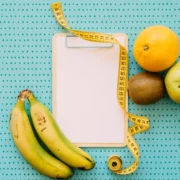
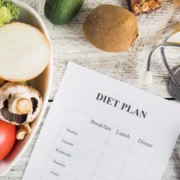



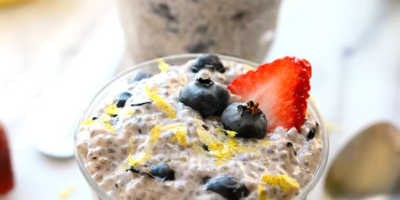
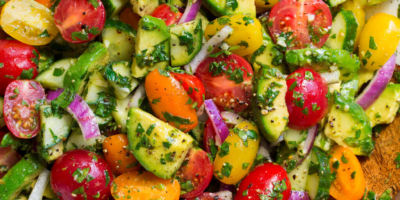
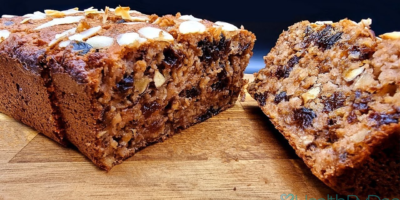




Comments